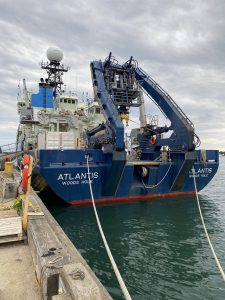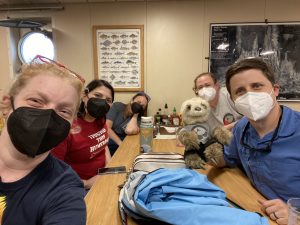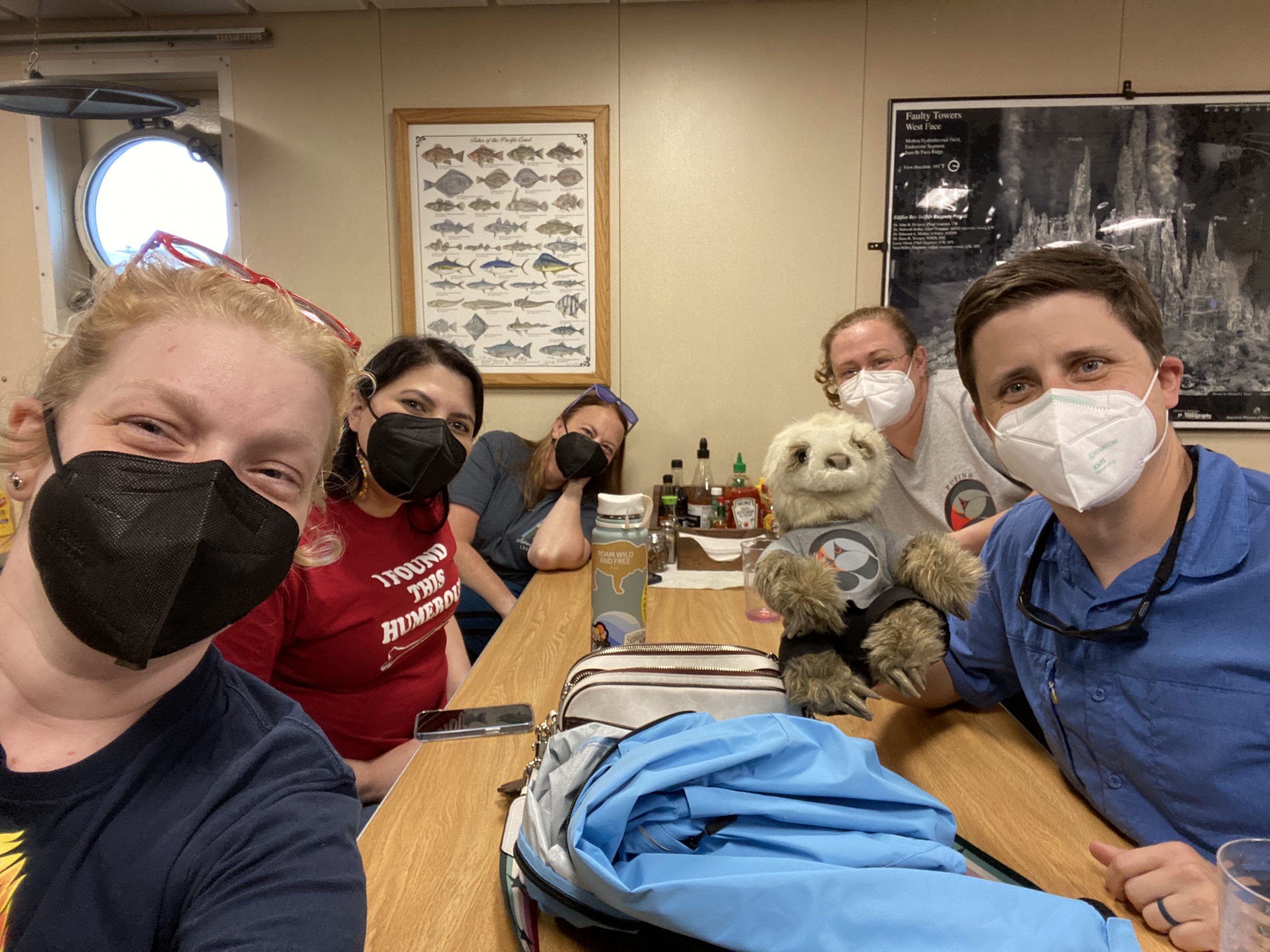The PUFINS Gather in Woods Hole

Planes, trains, and automobiles! All manner of transport was engaged to assemble the PUFINS team in Woods Hole, Massachusetts before the R/V Atlantis sets sail on Friday June 3, 2022. Scientists and educators flew in from all over the U.S. and Canada to take part of this expedition. I myself had an over 7 hour drive (thanks New York City traffic) to get from New Jersey to the Cape.
I spotted some cruise mates wearing our PUFINS t-shirts upon pulling into the Woods Hole Oceanographic Institute (shortened to just WHOI) parking lot, and joined them in hauling our stuff onboard. You are immediately hit with the nautical seaside vibes when walking through the town and spot all the various sea going vessels. After clearing the WHOI dock security checkpoint, we walked onto the dock and got our first real glimpse of the research vessels.
Lined up along the dock were the R/V Neil Armstrong and the R/V Atlantis , two of WHOI’s research class vessels. Our expedition is aboard the Atlantis, a ship owned by the U.S. Navy and operated by WHOI, that usually conducts expeditions that deploy the Alvin submersible. It is hard to explain the feeling of excitement that bubbles up when walking up to these ships. The anticipation of the start of a new adventure, the exhilaration of doing and seeing new things, and the joy of meeting new friends and colleagues. See the immense excitement in the eyes of the education and outreach team at our first group meeting after months of talking in little boxes on zoom.
Puffins, but with only one “F”
If you have read over our website, you may have already seen that “PUFINS” stands for Paleo Unsaturated-alkenone Fluxes In Northwest-Sediments.

Yes, we know that is a mouthful.
And yes, we know it is missing an “F”.
While the acronym does provide a good summary of our scientific goals, it also allows us to use the beautiful plumage of the puffin as our expedition logo. And now that we have this logo on stickers all over our laptops and water bottles, on our t-shirts, and on our hats, these sea birds are on all our minds.
Puffins are found in the northern parts of the Pacific and Atlantic Ocean, with the Atlantic Puffin calling the coasts of France, Northern Europe, Iceland, Greenland, Northwestern Canada, and Maine home. It is highly unlikely that we will spot any puffins while on this expedition, but the waters the scientists are sampling and studying directly affect their ecosystems.
Like all other life on Earth, puffins are also facing significant challenges due to climate change. Scientists are predicting that population numbers of puffins will plummet over the coming decades due to Arctic warming. Baby chicks, called pufflings, are dying in greater numbers due to the warming of local bodies of water and flooding of nesting grounds. Sadly, this type of story has become commonplace in the rapidly warming world we all find ourselves in. While this research won’t discover the answer to saving the puffins or other arctic animals facing similar issues, it will help scientists better understand how the past climate system functions.
As we get ready to depart in a few hours and prepare ourselves for rough seas, long hours, and muddy days, we will continue to remind ourselves…..do it for the puffins!
Check out this short video by Good Morning America on some of the issues the puffin population in Iceland are facing.
